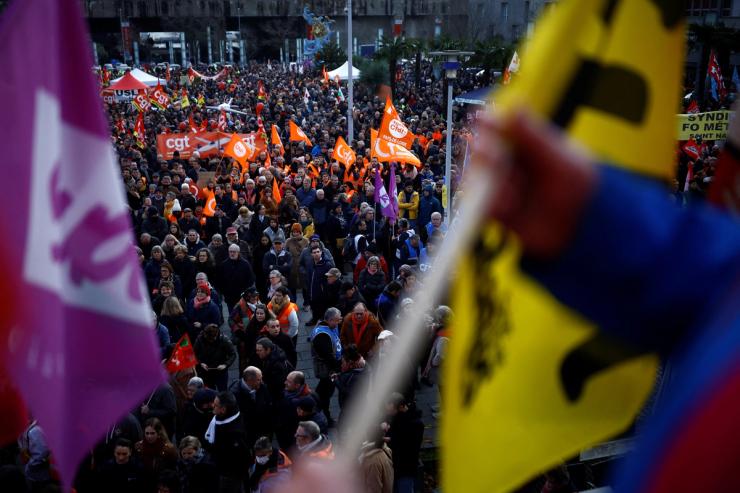The News
Close to 2 million workers across France and Britain went on strike Tuesday through Wednesday to demand fairer compensation and working conditions
In cities like London and Paris, thousands poured onto the streets — forcing schools to shut and rail services to come to a halt.

In this article:
The View From Britian
The U.K. is experiencing its biggest strike in over a decade, as more than half a million nurses, teachers, transportation workers, and civil servants marched the streets through Wednesday to demand higher wages amid rising food and energy costs. Some say that they can’t make ends meet.
Approximately 300,000 teachers, 100,000 civil servants, 70,000 university workers, and 100,000 train and bus drivers went on strike on Wednesday, CNBC reported, causing thousands of schools to shut for the day and impacting public transport and other essential services.
The strikes, which began in the summer, are expected to continue as healthcare workers and firefighters plan more protests over the next week.
According to data collected by the Institute of Fiscal Studies, teachers have seen their wages drop by as much as 10% since 2010. In response, British Prime Minister Rishi Sunak said that increasing wages would only worsen inflation.
On Tuesday, the International Monetary Fund predicted that the U.K. would be the only major global economy to slide into a recession in 2023.
However Reuters reported that the British economy has “not taken a major hit” from the ongoing industrial action. According to the Center for Economics and Business Research, the cost of strikes over the past eight months have amounted to $2.09 billion — 0.1% of the expected GDP.
The View From France
In France, over a million workers took to the streets on Tuesday to protest President Emmanuel Macron’s decision to raise the legal retirement age from 62 to 64 — a decision he says is “non-negotiable” and crucial to sustaining France’s pension system amid worsening inflation and higher life expectancies.
In France, pensions are structured as a pay-as-you-go system. Mandatory payroll taxes are used to fund pensions, according to the New York Times.
The strikes in Paris have been largely peaceful, except for clashes between riot police and a small fringe group of radical protesters. Police have arrested at least 30 people in the capital.
Labor unions say that Macron’s refusal to increase taxes on the rich and extend the retirement age is a decision that will further burden blue-collar workers.
While the majority of workers don’t support Macron’s decision, many cannot afford to go on strike with rising costs making it difficult to skip a day’s work.

